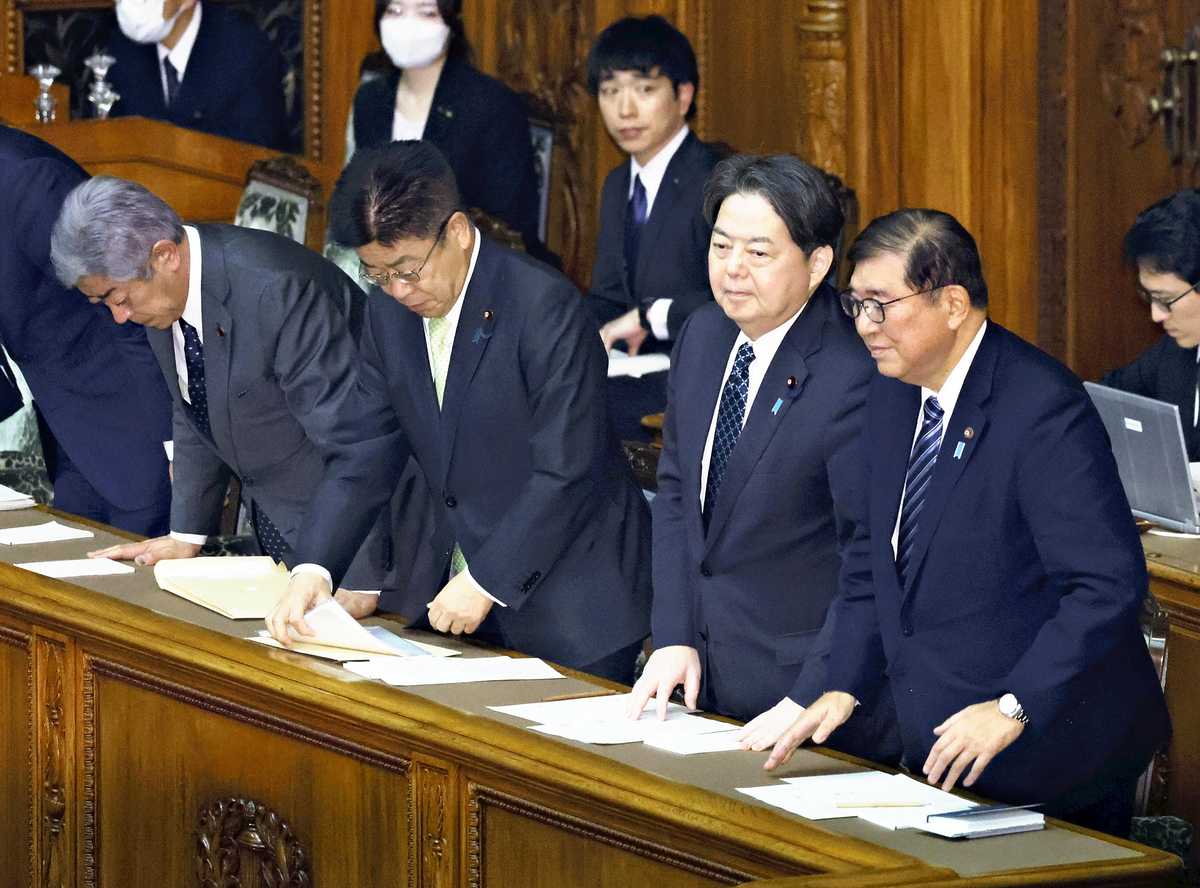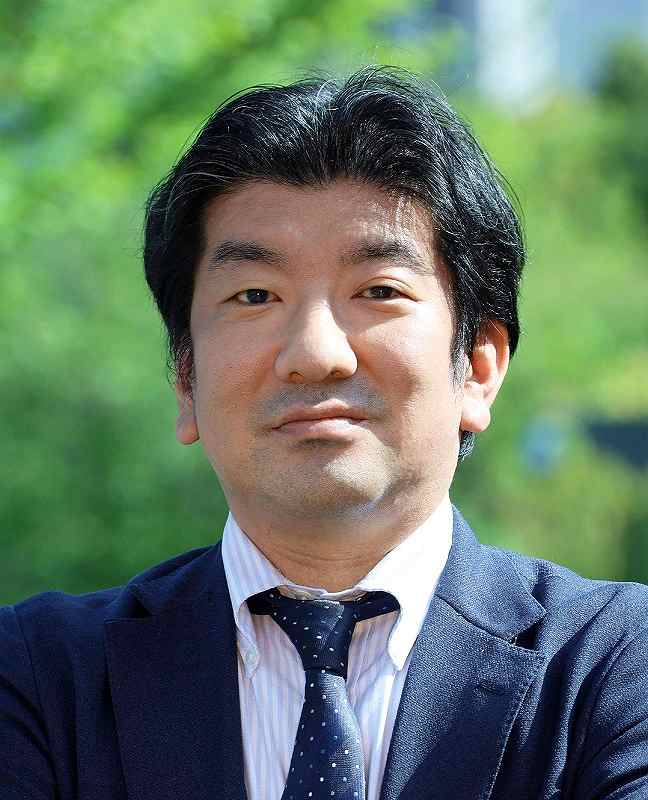Can a 1950s Prime Minister’s Approach Work Today? Ishiba, LDP Attempt Multilateral Political Dialogue

Prime Minister Shigeru Ishiba, front row, right, takes a bow after the fiscal 2024 supplementary budget is passed at a plenary session of the House of Councillors on Dec. 17.
8:00 JST, December 28, 2024
Prime Minister Shigeru Ishiba, who is also president of the Liberal Democratic Party, is seeking to overcome the LDP’s predicament as a minority ruling party by managing the Diet in a low-key manner. The government and ruling parties were able to clear the first hurdle, passing the fiscal 2024 supplementary budget bill, with the cooperation of the Democratic Party for the People and the Japan Innovation Party. A senior government official praised the prime minister for listening attentively to the opposition parties’ requests, saying, “This is the fruit of the prime minister’s political stance.”
While dialogue with opposition parties is indispensable, the prime minister sees 1950s Prime Minister Tanzan Ishibashi as a model of how democracy should work. Ishibashi, a journalist who had fought against prewar militarism, emphasized the power of speech and is widely respected by members of the ruling and opposition parties alike. Ishiba’s Nov. 29 policy speech quoted from Ishibashi’s policy speech: “As a main principle of our national policy, we will institute the practice of exchanging views in a straightforward manner at all times and work together while also clearly stating our individual stances. We must endeavor to keep pace with global progress while engaging in this ready cooperation.”
Since the Ishibashi Cabinet was in office for only 65 days, some in the government were cautious, saying that the quote was bad luck. But Ishiba, a devoted admirer of Ishibashi who owns a complete collection of his writings, insisted and the quotation remained.
It is not a bad thing for the government and ruling party to incorporate policies that are in the national interest, even if they are an opposition party’s idea. In some European countries, a form of “consensus democracy” based on a multiparty system has taken root. However, the reality in Japan is that the government and most of the parties avoid painful discussions on the financial resources needed to support their policies, and instead, only pork-barrel policies take precedence.
The DPFP has been strongly calling for the “¥1.03 million barrier,” the annual income threshold above which tax is levied, to be raised to ¥1.78 million. Both the Liberal Democratic Party and Komeito, hoping to get support for the supplementary budget from the DPFP, agreed to raise it. The Japan Innovation Party called for free education up to high school, and the ruling parties decided to set up a consultative body to study the issue. No party has been seen to squarely raise the issue of financial resources. Some within the LDP voiced concern that the party was making too many concessions to opposition parties and that it was giving up cards it could play in negotiations to win opposition support for the fiscal 2025 initial budget proposal.
Ishiba has told those around him, “We are not in a political situation where we can establish our unique policies,” and the national vision he is aiming for remains vague. Most policy decisions are also left to the LDP. Even before assuming the prime minister’s post, Ishiba had a reputation as a politician who was good at debating and criticizing, but unable to make decisions. Some in the government have pointed out that the prime minister’s weaknesses are less noticeable because he is a member of a minority ruling party, which limits his freedom of action.
However, the ideal form of democracy would be for the prime minister, as the top leader, to clearly present his vision for the nation and for the ruling and opposition parties to engage in vigorous debate based on that vision. Although Tanzan Ishibashi stepped down after a short period as prime minister due to poor health, he continues to be highly regarded as a leader for his clear vision in foreign and domestic politics, including his “Little Japanism.”
Constitutional Democratic Party of Japan leader Yoshihiko Noda, who served as prime minister in 2011-12, also holds Ishibashi in high regard. On Dec. 6, Noda made the following complaint about Ishiba at a press conference: “Mr. Ishibashi was a great politician in the sense that he never wavered in his thinking even at major turning points of the times. Prime Minister Ishiba is inconsistent in what he said during the LDP presidential election and what he is saying in the Diet. I wish he would learn more from Tanzan Ishibashi.”
At a meeting on Dec. 19, Ishiba expressed his determination, saying, “Although we are a minority ruling party, we will listen to the opinions of various people and establish the Japan we should aim for.”
Will Ishiba establish a politics of deliberative democracy that aims to reflect the broad popular will, including that of minority groups? Or will he fall into a politics that only seeks to prolong his administration’s life, marked only by caution in dealing with the ruling and opposition parties?
Ishiba’s true value will be severely tested at the ordinary Diet session to be convened in January. The success or failure of this process will directly affect the House of Councillors election to be held in the summer.
Political Pulse appears every Saturday.

Michitaka Kaiya
Kaiya is a staff writer in the Political News Department of The Yomiuri Shimbun.
Top Articles in Editorial & Columns
-

Riku-Ryu Pair Wins Gold Medal: Their Strong Bond Leads to Major Comeback Victory
-

40 Million Foreign Visitors to Japan: Urgent Measures Should Be Implemented to Tackle Overtourism
-

China Provoked Takaichi into Risky Move of Dissolving House of Representatives, But It’s a Gamble She Just Might Win
-

University of Tokyo Professor Arrested: Serious Lack of Ethical Sense, Failure of Institutional Governance
-

Policy Measures on Foreign Nationals: How Should Stricter Regulations and Coexistence Be Balanced?
JN ACCESS RANKING
-

Japan PM Takaichi’s Cabinet Resigns en Masse
-

Japan Institute to Use Domestic Commercial Optical Lattice Clock to Set Japan Standard Time
-

Israeli Ambassador to Japan Speaks about Japan’s Role in the Reconstruction of Gaza
-

Man Infected with Measles Reportedly Dined at Restaurant in Tokyo Station
-

Videos Plagiarized, Reposted with False Subtitles Claiming ‘Ryukyu Belongs to China’; Anti-China False Information Also Posted in Japan























